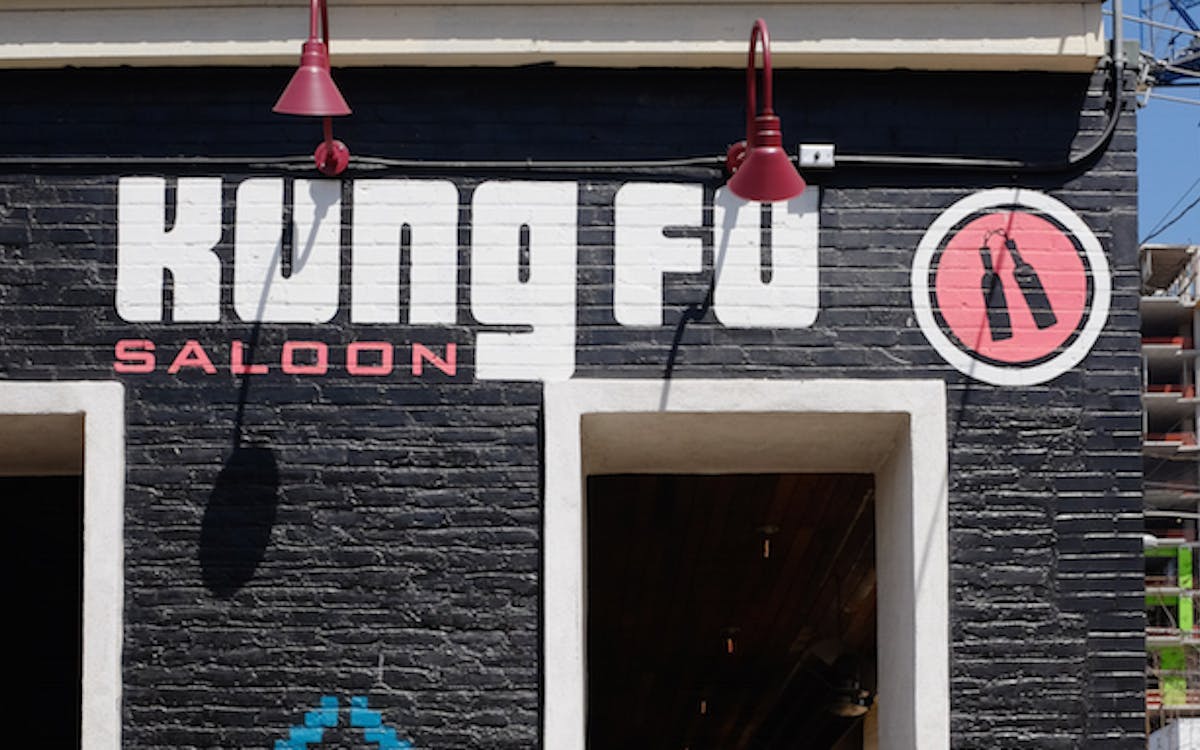The bar chain Kung Fu Saloon has been under intense scrutiny for the past few years now—for racist business practices, for violent employees, and for the number of DWI arrests that involve people leaving their locations. And at least one of them has resulted in a settlement involving the U.S. Justice Department. As the Dallas Morning News reports:
According to a document filed today in Dallas federal court, the Uptown location — as well as the ones in Houston and Austin — “have engaged in policies and practices that deny African American and Asian individuals, on account of their race, color, or national origin, the full and equal enjoyment of the goods, services, facilities, privileges, advantages, and accommodations of Kung Fu Saloons.” The complaint, filed by U.S. attorneys in the Department of Justice’s Civil Rights Division, was filed today as part of a settlement with Kung Fu Saloon owners, who have agreed to “implement changes to policies and practices in order to prevent such discrimination,” according to a release out of D.C.
The complaint says Kung Fu Saloon employees in Dallas, Austin and Houston have been discriminating against customers since 2011. Most infamously, DeAndré Upshaw said he was refused entry to the Routh Street location because he’s black; the bouncer insisted it was because of his Converse All-Stars. The Justice Department didn’t buy it.
“Moments earlier, his white friend was permitted entry even though he wore the same brand of athletic shoes,” according to the complaint. “When the African American patron informed the Defendants’ employee that his white friend was permitted entry even though he was wearing the same brand of shoes, the employee replied that it was up to Kung Fu ‘who can come in and who can’t.’”
It’s not actually up to employees of a bar to determine if black customers are allowed in and white customers are not—indeed, that battle was well-fought through the sixties—and the Justice Department’s responsibilities include determining when businesses are engaging in such discrimination.
The pattern of discrimination at Kung Fu extends beyond the incident with Upshaw—an Austin man named Stephen Robinson reported an identical incident at the chain’s Austin location in 2013, and visitors in Houston have long made similar allegations. Which perhaps makes the DOJ’s findings unsurprising. And the impact at the bar can be found immediately: the dress code, which previously existed on a “we’ll know it when we see it” basis, has now been made explicit and clear, and changes to the policy—as well as employee training and policy enforcement—have to go through the Justice Department, going forward.
We’ll see if this is the end of the troubles for Kung Fu Saloon. But regardless, it’s a clear indication that complaints of racism hurled in the club’s direction were on-base.














You must be logged in to post a comment Login